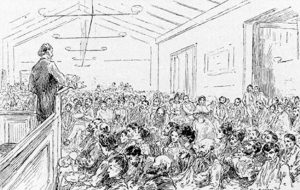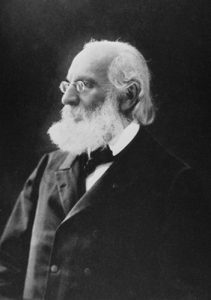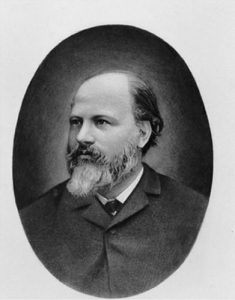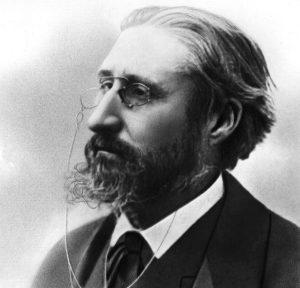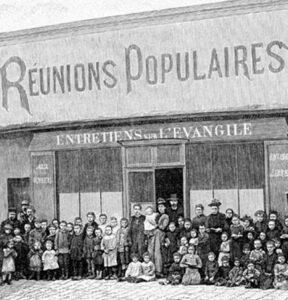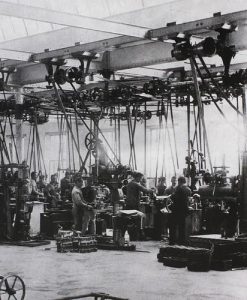The popular evangelical missions (the MacAll Mission)
An English pastor got the idea of a popular mission when he came to France at the time of the Commune. Conversations in the Belleville neighbourhood convinced him of the necessity of a specific evangelization amongst the working class. He left Suffolk with his close family, settled in Paris and devoted his entire fortune to his project. In 1872, the first mission hall was opened in the Belleville neighbourhood (the Brotherhood Society). Soon after, others opened up in various neighbourhoods around Paris, in Ménilmontant, in the Faubourg Saint Antoine, in Bercy, in Grenelle and then outside Paris, in Marseilles and Lyons. The idea was to keep open-house to “passers-by”, mainly workers and their families living in the neighbourhood. Meetings were held during which the Gospel was read and commented, vocational classes and free health care were given. Occasional visitors were numerous : they called in as a result of hearsay but some returned regularly.
The staff recruited and paid by the mission did not necessarily belong to the officially recognised French Protestant churches. Pastor Mac All had asked for financial help from American churches and had in return accepted staff that belonging to Baptist churches. This caused some conflict with the pastoral corps in Paris, who first refused that religious services should be held in these halls even though this was their primary aim. Tough negotiations led to a compromise whereby parish churches were opened to congregations of nearby brotherhood Societies.
Protestant Trade Society
It was founded in 1868, amongst others by E.Laboulaye and by the economist Frederic Passy. Its aim was to provide small companies and businesses with the accountants, cashiers, managers, salesmen and saleswomen that they needed. Several trade union chambers followed the Society’s example by offering this service without charge.
The House of Hospitality
This organisation was founded in 1880, to host the unemployed and to try and help them find another job.
Protestant Association for the Practical Study of Social Issues
It was created in 1867 by the joint efforts of pastor Tommy Fallot and the economist Charles Gide. It focused on practical social consequences of industrialisation within the framework of a free market economy. In other terms, the inevitable social consequences resulting from the incompressible constraints attached to industrialisation must be dealt with individually.
The Association publishes the periodical “Revue du Christianisme Pratique” (la Revue du Chritianisme pratique).
French Society for the observation of Sunday
During the Second Napoleonic Empire and at the beginning of the Third Republic, the living conditions of the working class were extremely precarious : hard toil, no weekly day off, no social protection whatever and, more generally, such hardships as had been depicted, amongst others, by Zola in the Rougon-Macquart. The Society, founded in 1875, strove to improve working conditions in collaboration with secular organisations such as the Popular League in Favour of Sunday Rest. It presented all sorts of arguments in favour of free Sundays : better hygiene, a more balanced family life, opportunity to strengthen the moral demands and thus a better contribution to public welfare, etc. The Society fought, for example, for Sunday closing of shops and opened churches to welcome the employees freed from their professional duties ; it called the pastors’ attention to this new fellowship and recommended they should, amongst other things, adjust their preaching to this new audience. It likewise published a hymn book.
The liberal economist Léon Say, chairman of the Senate, was one of the most dedicated members of this Society.
Service organisation for the welfare of salesgirls
This organisation, founded in 1883 by an American woman, Miss Atterbury, was typical of its time (Zola had published Au Bonheur des Dames). It was significant of the way the Protestant bourgeoisie regarded the social disadvantages resulting from the progress to which it itself had contributed : progress must be fostered at all levels, however modest and limited these might be, while moral standards must be kept high.
In fact, the following issue was at stake : department stores, a new form of business, represented progress, but the latter had its disadvantages. One of the most serious of these was the precarious working conditions of the employees, mainly that of salesgirls. According to the benefactor, the latter might be tempted to lead a double life : “the young girls who look so charming behind their counters are much less so once they have finished their work” (Les demoiselles si charmantes derrière leur comptoir, le sont moins une fois leur travail terminé) (Dictionnaire des oeuvres protestantes). The Society aimed at providing a meeting place on the premises where the salesgirls could get together during the break, be welcomed by a caring staff, and further their education (with a selective choice of books, sol-fa lessons and, most of all, the learning of English, an obvious asset in this job). The idea was likewise to offer career advice in order to get a more stable and “decent” job.

